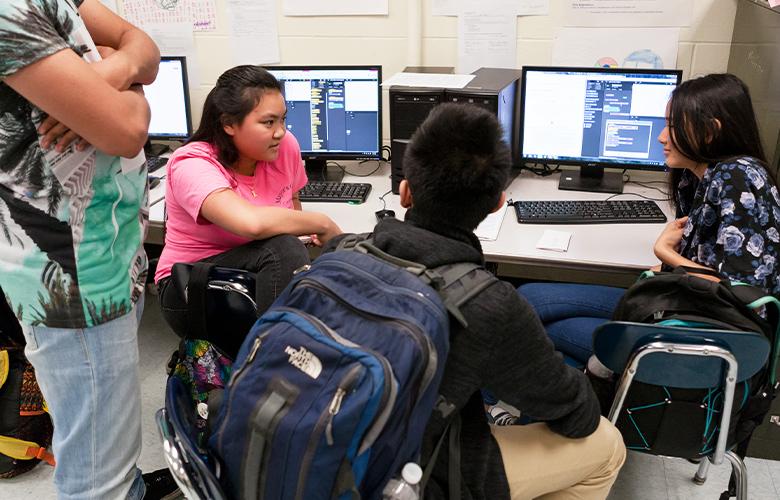
The theme of this year’s Computer Science Education Week—#CSforSocialJustice—is always vital. Yet the events of 2020 have sharply underscored its importance to students in the United States.
The COVID-19 crisis and renewed focus on racial injustice have spotlighted inequities in access to digital resources and educational opportunity nationwide. In the case of computer science (CS) education, although progress is being made in broadening participation in CS education, much more work remains to be done. Too many students still do not have the chance to build CS knowledge and skills needed for success in the workforce—especially girls and students of color.
CS education varies greatly from state to state, and ongoing research is key to providing insight into each state’s successes and challenges. For almost a decade, Massachusetts has worked to promote equity of access to CS education—focusing largely on increasing the availability of high school CS courses and developing a cadre of CS teachers to offer these courses. Recently, we completed a longitudinal analysis of Massachusetts’s progress toward providing all students with a high-quality CS education and found that the state still has some distance to go to reach its goals.
Several of our findings follow:
- More males take Advanced Placement (AP) CS tests than females. While the number of female students taking AP CS tests has increased since 2006, so has the number of males. About one-third of Massachusetts students taking AP CS tests are female.
- Average test scores for female students have been increasing and are approaching average test scores for males.
- Since AP Computer Science Principles was introduced in 2017 as a second AP CS exam option, test taking among Black students has tripled. Test taking among Hispanic/Latinx students has also increased, but not as substantially.
- Despite greater representation of Black and Hispanic/Latinx AP CS test takers, mean scores for these two groups continue to be lower than those for White and Asian students.
Our findings can’t tell the whole story of how Massachusetts is striving to achieve equitable K–12 CS education. But they do offer a helpful longitudinal look at students’ performance on a well-established assessment. Other states might find it helpful to conduct similar analyses, which could be shared and used to guide potential course corrections to policies and programs.
Please feel free to ask us questions below. We also invite you to share what the research says about your state’s progress in achieving equity in CS education.
| Lynn Goldsmith, an EDC distinguished scholar, adviser and experienced educational researcher, applies her training as a developmental psychologist to provide new insights into effective approaches to interdisciplinary STEM learning and teaching. | |
| Jim Stanton, a nationally known CS education leader, focuses on scaling statewide, standards-based CS education and advancing research-based, sustainable equity policies and practices to expand access to high-quality CS learning for all students. |


Add new comment